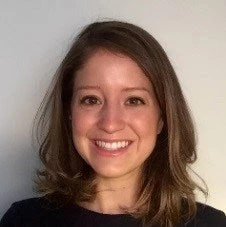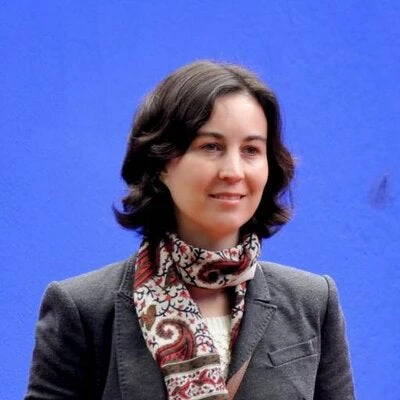Nine out of 10 Argentines live in cities and towns, making Argentina one of the most urbanized countries in the world. What’s more, 1 in 2 Argentines, along with two thirds of argentine firms, are located in the five largest metropolitan regions (Buenos Aires, Córdoba, Rosario, Mendoza and San Miguel de Tucumán). As a result, cities play a very important role in Argentina’s path towards sustainable development.
However, a recent study by the World Bank found that Argentine cities are not benefiting sufficiently from the advantages associated with urbanization, such as economies of scale, more efficient labor markets, and knowledge spillovers. Sprawling urbanization, insufficient municipal resources and limited coordination and planning, amongst others, have hindered the cities’ potential to promote economic and social prosperity.
At the heart of the country’s urban challenges is the housing sector. One major concern is affordability, especially in the largest cities, where wages have not risen in line with increasing housing prices. As a result, the sector’s deficiencies, combined with migration to urban centers, has led to the proliferation of informal settlements with limited access to basic services.
It’s estimated that, 18 percent of the population, or 2 in every 11 people, lives in informal settlements, known as “villas”, where poverty levels can reach as high as 55%. What’s more, it is estimated that over one fourth of these settlements are less than 10 years old.
Pervasive poverty, along with a lack of social services in informal settlements, are major barriers to inclusive growth. To put it into context, on average, only one third of adults aged 25 in informal settlements have completed high school, compared to three quarters of young adults nationally. What’s more, job insecurity is common, 76% of the workforce in informal settlements in the Buenos Aires Metropolitan Area lacks job security.
In response, the Argentine Government, in keeping with its zero poverty objective, has launched a strategy to improve living conditions in urban areas. Specifically, the National Housing and Habitat Plan aims to increase access to housing as well as reducing the spread of informal settlements. Over the course of three years (2016-19), the US$ 6.4 billion Plan will support over 1 million housing interventions, including the urbanization of 280 informal settlements.
The World Bank is working with the Government to support this Program through two recently approved projects; the Integrated Habitat and Housing Project and the Metropolitan Buenos Aires Urban Transformation Project.
The former will support the first nation-wide demand-driven housing subsidy program in Argentina, the Linea Solución Casa Propia. This program represents a policy shift from public housing provision to a more market based system, leveraging private sector financing and household savings. This means that eligible first-time buyers will be awarded mortgage-linked subsidies, largely adopting the ABC (Ahorro, Bono, Crédito or Saving, Subsidy and Mortgage) principles inspired by a similar initiative in Chile to enable families who are not able to purchase their first house currently, to do so.
At the same time, the project will support the Government in its efforts to improve living conditions for an estimated 18,000 households living in informal settlements, by providing secure legal tenure, increasing access to basic services, improving public spaces and community infrastructure, reducing environmental risks and strengthening social programs.
The Metropolitan Buenos Aires Urban Transformation Project will support the improvement of living conditions for around 48,000 residents in disadvantaged neighborhoods in the Buenos Aires Metropolitan Area (both in the City of Buenos Aires and the Province of Buenos Aires), integrating them into the wider urban fabric. Specifically, the project will finance improving housing and basic urban services and infrastructure. The flagship initiative within this Project is the urbanization of Villa 31 in the City of Buenos Aires. One of the largest, and most visible, informal settlements in the country. The Project supports the city’s efforts to transform the slum into the neighborhood Barrio 31. In addition, the World Bank, through a grant from the Energy Sector Management Assistance Program, is providing technical assistance to promote the efficient use of energy, including the use of renewable energy, in existing and planned public, residential and commercial buildings, as well as in infrastructure and public spaces.
Villa 31 is literally in the heart of Buenos Aires, within walking distance from the busiest urban neighborhoods. Transforming Villa 31 into Barrio 31 will change the face of Buenos Aires and lead the way for housing and urban transformation throughout Argentina.
However, a recent study by the World Bank found that Argentine cities are not benefiting sufficiently from the advantages associated with urbanization, such as economies of scale, more efficient labor markets, and knowledge spillovers. Sprawling urbanization, insufficient municipal resources and limited coordination and planning, amongst others, have hindered the cities’ potential to promote economic and social prosperity.
At the heart of the country’s urban challenges is the housing sector. One major concern is affordability, especially in the largest cities, where wages have not risen in line with increasing housing prices. As a result, the sector’s deficiencies, combined with migration to urban centers, has led to the proliferation of informal settlements with limited access to basic services.
It’s estimated that, 18 percent of the population, or 2 in every 11 people, lives in informal settlements, known as “villas”, where poverty levels can reach as high as 55%. What’s more, it is estimated that over one fourth of these settlements are less than 10 years old.
Pervasive poverty, along with a lack of social services in informal settlements, are major barriers to inclusive growth. To put it into context, on average, only one third of adults aged 25 in informal settlements have completed high school, compared to three quarters of young adults nationally. What’s more, job insecurity is common, 76% of the workforce in informal settlements in the Buenos Aires Metropolitan Area lacks job security.
In response, the Argentine Government, in keeping with its zero poverty objective, has launched a strategy to improve living conditions in urban areas. Specifically, the National Housing and Habitat Plan aims to increase access to housing as well as reducing the spread of informal settlements. Over the course of three years (2016-19), the US$ 6.4 billion Plan will support over 1 million housing interventions, including the urbanization of 280 informal settlements.
The World Bank is working with the Government to support this Program through two recently approved projects; the Integrated Habitat and Housing Project and the Metropolitan Buenos Aires Urban Transformation Project.
The former will support the first nation-wide demand-driven housing subsidy program in Argentina, the Linea Solución Casa Propia. This program represents a policy shift from public housing provision to a more market based system, leveraging private sector financing and household savings. This means that eligible first-time buyers will be awarded mortgage-linked subsidies, largely adopting the ABC (Ahorro, Bono, Crédito or Saving, Subsidy and Mortgage) principles inspired by a similar initiative in Chile to enable families who are not able to purchase their first house currently, to do so.
At the same time, the project will support the Government in its efforts to improve living conditions for an estimated 18,000 households living in informal settlements, by providing secure legal tenure, increasing access to basic services, improving public spaces and community infrastructure, reducing environmental risks and strengthening social programs.
The Metropolitan Buenos Aires Urban Transformation Project will support the improvement of living conditions for around 48,000 residents in disadvantaged neighborhoods in the Buenos Aires Metropolitan Area (both in the City of Buenos Aires and the Province of Buenos Aires), integrating them into the wider urban fabric. Specifically, the project will finance improving housing and basic urban services and infrastructure. The flagship initiative within this Project is the urbanization of Villa 31 in the City of Buenos Aires. One of the largest, and most visible, informal settlements in the country. The Project supports the city’s efforts to transform the slum into the neighborhood Barrio 31. In addition, the World Bank, through a grant from the Energy Sector Management Assistance Program, is providing technical assistance to promote the efficient use of energy, including the use of renewable energy, in existing and planned public, residential and commercial buildings, as well as in infrastructure and public spaces.
Barrio 31: Buenos Aires' Newest Neighborhood
Villa 31 is literally in the heart of Buenos Aires, within walking distance from the busiest urban neighborhoods. Transforming Villa 31 into Barrio 31 will change the face of Buenos Aires and lead the way for housing and urban transformation throughout Argentina.




Join the Conversation